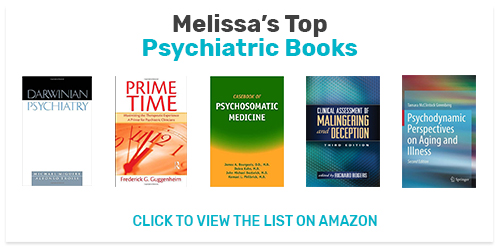Day In The Life of a Psychosomatic Medicine NP

Psychiatric nurse practitioners have the opportunity to work in a variety of subspecialties including the addiction, forensics, geriatrics and pediatrics. One of the lesser known but incredibly exciting fields is psychosomatic medicine.
Psychosomatic medicine, also called consultation-liaison psychiatry, focuses on the interface between physical and mental illness. The word psychosomatic arises from the Greek terms psyche (soul) and soma (body). Practitioners of psychosomatic medicine are known as “med-psych detectives,” and they are charged with investigating some of the most complex patient cases.
I remember learning about this specialty in nurse practitioner school and thinking, “You had me at “detective!” Ever heard of the TV show House? Well, it’s sort of like that, but with less Hollywood and more paperwork.
Usually, large hospital systems employ a handful of psychosomatic specialists who are consulted across different medical units to solve bewildering patient presentations. Anytime a clinician encounters an uncertain diagnosis, peculiar symptom or confounding psychiatric disorder, they call upon a psychosomatic nurse practitioner to investigate.
I had the incredible opportunity to work on a team of psychosomatic specialists including physicians, physician assistants and other nurse practitioners. It was the experience of a lifetime, and I would recommend it to every psychiatric nurse practitioner.
I worked Monday through Saturday from 8:00 am to 5:00 pm at a massive healthcare system with over 1,000 acute care beds and level I trauma center. Each day I saw three to five patients.
Patient cases usually fell into one of the following categories:
- Capacity evaluations
- Complex substance withdrawal (e.g. inhalants, bath salts, spice)
- Comorbid psychiatric and medical conditions
- Medical conditions resulting in psychiatric or behavioral symptoms (e.g. delirium)
- Psychiatric conditions that present with physical symptoms (e.g. somatoform disorders)
- Psychiatric emergencies (e.g. traumatic events, suicide attempts, self-harm behavior)
I’d spend hours scrutinizing a case. I’d conduct comprehensive chart reviews, in-depth interviews and search recent scientific research for the latest case studies or treatment options. I communicated regularly with secondary sources such as police officers, case managers and family members. Sometimes a mere Google or Bing search would unveil extra information about the case in question.
My patients were sometimes the center of news stories requiring moments of dodging the nosy journalists. Each patient encounter resulted in lengthy reports that summarized my analysis and recommendations. In an average week, I’d find myself anywhere from the emergency room, burn unit, ICU, PICU, NICU and SICU to the labor and delivery and dialysis unit. The week was never complete without complex delirium, postpartum depression, alcohol withdrawal or a suicide attempt. I made difficult decisions every day; I conducted suicide risk assessments and capacity evaluations.
I was often faced with answering these questions:
- Should this person be committed to a psychiatric hospital against his or her will?
- Can this person function independently after discharge?
- Can this patient give informed consent?
- May this patient decline medical treatment or leave against medical advice?
As a psychosomatic medicine nurse practitioner, I saw a 47-year-old man who attempted suicide with a firearm to the head and a 6-year-old girl who attempted suicide by hanging herself from her bunk bed. I treated murderers and arsonists handcuffed to the hospital bed. I’ll never forget the man with a factitious disorder who was injecting himself with feces in order to gain compassion from medical providers.
I facilitated moments where a new mother’s child was taken away due to her methamphetamine addiction, and I supported moms who had stillborn children. I saw patients with psychogenic amnesia, Wernicke’s encephalopathy, factitious disorder by proxy and pediatric autoimmune neuropsychiatric disorders associated with streptococcal infections.
I saw patients and treated conditions I’ll never forget. I was, undoubtedly, confronted with the most emotionally exhausting and traumatic moments of my life. I witnessed some of the darkest moments in people’s lives, but I know I came out a stronger, smarter, better NP.
Working in psychosomatic medicine was the most exciting and challenging clinical position I ever held. Every day my team took on the toughest patients in the entire system.
Learn more about psychosomatic medicine by reading some of my favorite books:
- Psychosomatic Medicine: An Introduction to Consultation-Liaison Psychiatry
- Casebook of Psychosomatic Medicine
- Psychosomatic Medicine Pittsburgh Pocket Guide
- Textbook of Evolutionary Psychiatry and Psychosomatic Medicine
I originally wrote this article for Health eCareers. Read the article on their blog, and check out the latest nurse practitioner jobs and salary information on their website.
Share on Facebook Share on Twitter Share on Pinterest
0 Comments on "Day In The Life of a Psychosomatic Medicine NP"